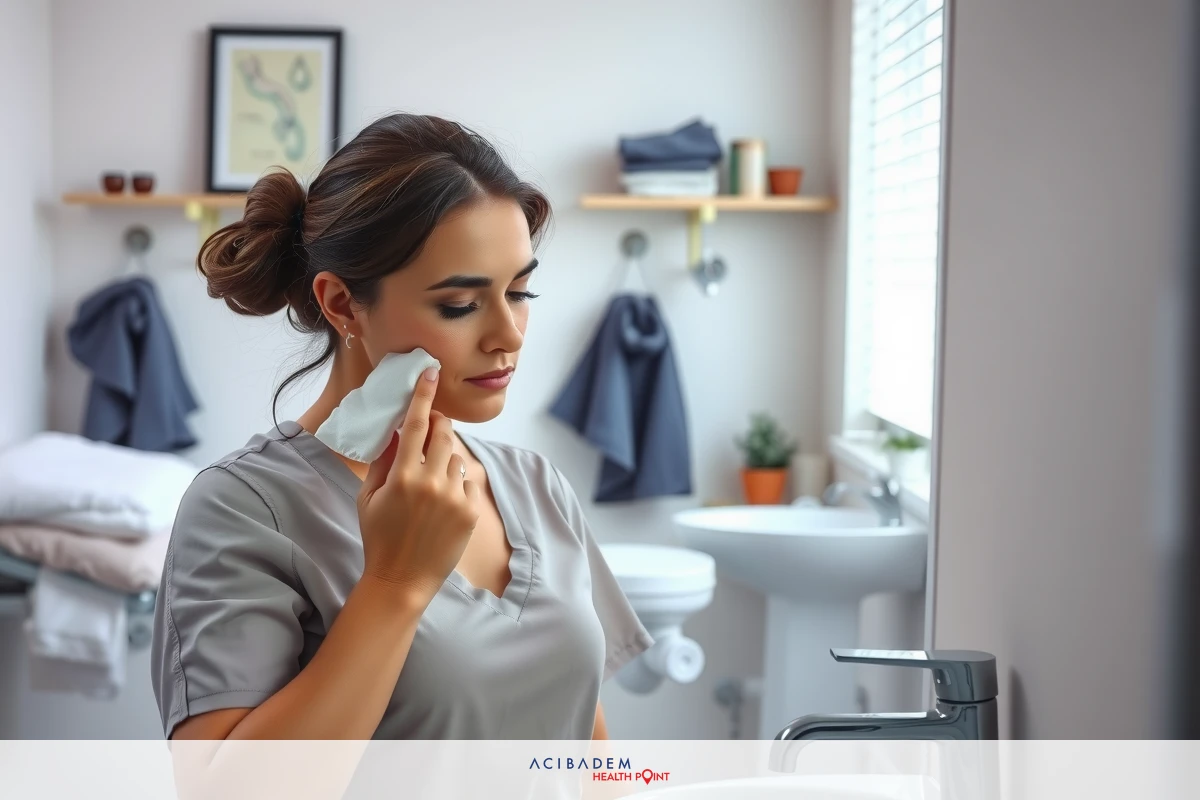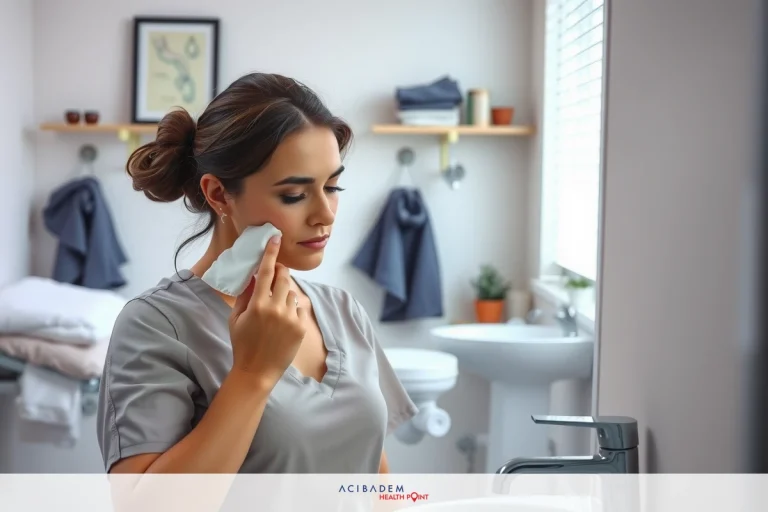How Can I Clean My Nose After Rhinoplasty?
How Can I Clean My Nose After Rhinoplasty? Rhinoplasty, a type of plastic surgery that alters the shape or function of the nose, demands a specific postoperative care routine to ensure a successful recovery. Cleaning your nose after rhinoplasty is one crucial aspect of this routine. It might seem intimidating at first, especially given the sensitivity of the area and the delicacy required to avoid causing discomfort or disrupting the healing process.
The timing and method of cleaning your nose after rhinoplasty are key to promoting optimal healing and hygiene. It’s essential to follow your surgeon’s instructions closely, as each case is unique and may require different care approaches. This article will provide you with general guidelines and helpful tips on how to clean your nose gently and effectively during your recovery period after rhinoplasty surgery.
When can I start cleaning my nose after rhinoplasty?
The timeline for starting to clean your nose after rhinoplasty generally begins a few days post-surgery. However, it is important to note that this can vary depending on your specific case and the instructions of your doctor. The immediate aftermath of rhinoplasty often involves some swelling and discomfort, during which time you should refrain from any nose cleaning attempts. It is crucial to allow your nose time to begin the recovery process undisturbed.
Once your doctor gives you the green light, you can start with gentle cleaning practices. This typically comes after the initial check-up, where they assess the progress of your healing. During this post-operative care period, it’s vital to be patient and gentle with your nose. Rhinoplasty is a significant procedure that requires ample time for recovery. Rushing into cleaning before your nose is ready can potentially interrupt the healing process or cause unnecessary discomfort.
Throughout your recovery period, maintaining clear communication with your healthcare provider is key. They will provide guidance on when to start cleaning and how to do so safely. Carefully following these guidelines aids in a smoother recovery and helps avoid complications. Remember, each rhinoplasty patient’s journey is unique; hence, it’s okay if your timeline for starting nose cleaning doesn’t exactly match up with general expectations. Your personal health and healing should always be the top priority in your postoperative care plan.
How should I clean my nose after rhinoplasty?
Cleaning your nose post-rhinoplasty is a delicate task that demands careful attention. The ultimate aim is to maintain hygiene without causing any harm or discomfort. It’s crucial to follow your doctor’s specific instructions, but here are some general guidelines to help you navigate this part of your recovery.
- Use Saline Solution: Most doctors recommend using a saline solution for cleaning the inside of your nose after rhinoplasty. A saline rinse helps to keep nasal passages moist and aids in removing crusts or mucus.
- Gentle Blowing: If you feel the need to blow your nose, do so gently. Forceful blowing can disrupt the healing process and cause bleeding or swelling.
- Avoid Nasal Sprays: Unless prescribed by your doctor, avoid using nasal sprays post-rhinoplasty.
These can potentially cause irritation and impact the recovery process.
- Clean External Area: Use a mild soap and water to clean the outer area of your nose during your regular face wash routine.
- Regularly Change Nasal Dressings: If you have nasal dressings, it’s important to change them regularly as instructed by your healthcare provider.
- No Nose Picking: Avoid picking your nose under any circumstances. This can lead to infections and

A woman in a hospital uniform, cleaning her face with napkin. The environment is clinical and sterile, with hanging medical coats. complications in the healing process.
Remember, every individual’s recovery process is unique. Always consult with your doctor about the best methods for cleaning your nose after rhinoplasty based on your personal recovery plan.
Tips for Gentle and Effective Nose Cleaning
Cleaning your nose gently and effectively after rhinoplasty is vital to ensure a smooth recovery. It helps in reducing discomfort, maintaining hygiene, and promoting healing. Here are some helpful tips to guide you through this process.
- Patience is Key: Be patient with the cleaning process. It’s essential not to rush or force anything as it can potentially cause damage or delay in the healing process.
- Soft Touch: Always use a soft touch when cleaning both the inside and outside of your nose. This will help avoid any potential injury or discomfort.
- Use the Right Tools: Use a bulb syringe or a neti pot for saline rinses. These tools allow for a gentle and effective way to clean your nasal passages.
- Stay Hydrated: Keeping your body hydrated can help in keeping your nasal passages moist and reducing crust formation.
- Follow a Routine: Establishing a regular cleaning routine can be beneficial. Consistency aids in maintaining cleanliness and promotes faster healing.
- Heed Discomfort: If you experience pain or discomfort during cleaning, stop immediately and consult your doctor.
Remember, these tips are general suggestions. Always follow the specific instructions provided by your healthcare provider for your post-operative care after rhinoplasty.
Frequently Asked Questions
When can I start using nasal sprays after rhinoplasty?
It is best to avoid using nasal sprays unless specifically prescribed by your doctor. They can potentially cause irritation and interfere with the healing process of your nose. Consult with your healthcare provider for guidance on when it is safe to resume using nasal sprays post-rhinoplasty.
Can I blow my nose after rhinoplasty?
It is generally recommended to avoid forceful blowing of your nose in the early stages of recovery after rhinoplasty. This can disrupt the healing process, cause bleeding, or lead to swelling. If you need to clear your nasal passages, do so gently or consult with your doctor for specific instructions.
How often should I clean my nose after rhinoplasty?
The frequency of cleaning your nose will depend on the specific instructions provided by your surgeon. Generally, a saline rinse can be performed multiple times a day, as recommended by your healthcare provider. Follow their guidelines to ensure proper hygiene and healing.
Can I use cotton swabs to clean inside my nose after rhinoplasty?
It is important to avoid inserting anything into your nostrils, including cotton swabs or any other objects. These can cause damage to the delicate tissues inside your nose and increase the risk of infection. Stick to gentle saline rinses and follow the instructions given by your doctor.
What should I do if I accidentally hit or bump my nose during the recovery period?
Accidentally hitting or bumping your nose during the recovery period can be concerning, but it is important not to panic. Contact your surgeon immediately and inform them about the incident. They will provide you with appropriate guidance based on the severity of the impact and assess if any further action needs to be taken.











